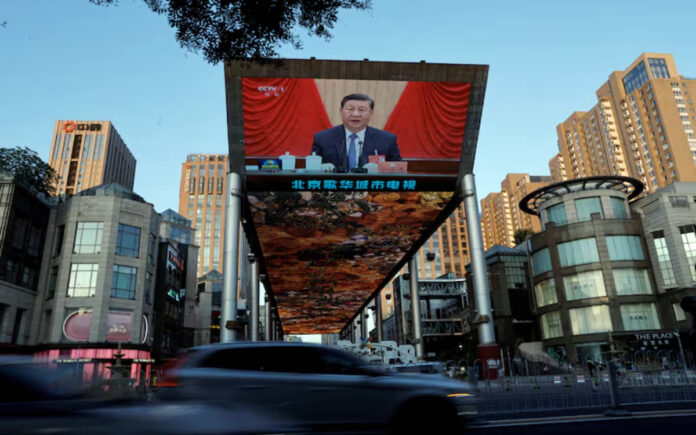Beijing: China released a 60-point policy agenda on Sunday outlining goals from advancing industries to enhancing the business environment, following a recent Communist Party Central Committee meeting. However, the document lacks detailed implementation strategies.
The agenda emerged from a Central Committee plenum, led by President Xi Jinping, which convened from July 15-18. This plenum, held roughly every five years, occurs as China grapples with a prolonged property crisis, escalating debt, weak consumer and business confidence, and growing trade tensions amidst global concerns over China’s export dominance.
The document asserts that markets will play a decisive role in resource allocation and that the government will focus on legislation to improve conditions for the private sector. It also outlines plans for fiscal, land, and financial reforms. Additionally, it aims to boost affordable housing, enhance job opportunities for young people, and raise the standard of living for the elderly.
Despite its broad goals, the document does not specify how these objectives will be achieved, particularly given the inherent contradictions in the policy targets. For example, officials have not clarified how to increase consumer spending while directing resources primarily toward producers and infrastructure, or how to stimulate growth while managing debt levels.
Also Read | UK Public Sector Workers Could See Pay Hikes Above Inflation, Says Finance Minister
A similar policy agenda was introduced at the 2013 plenum, which included goals similar to those outlined in Sunday’s document but also aimed at liberalizing financial markets and boosting domestic consumption. However, capital outflows in 2015 halted many of these plans.
Also Read | Pope Hopes Paris Olympics Will Foster Global Truces
Recent years have seen a shift towards tighter control over significant sectors of the economy, with increased regulatory crackdowns on industries such as technology and finance, driven by national security considerations.



